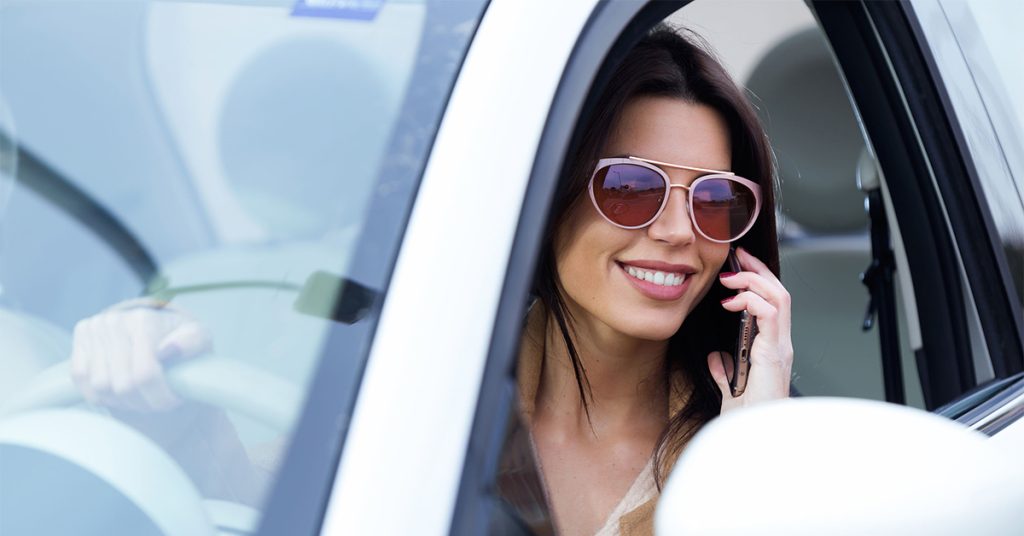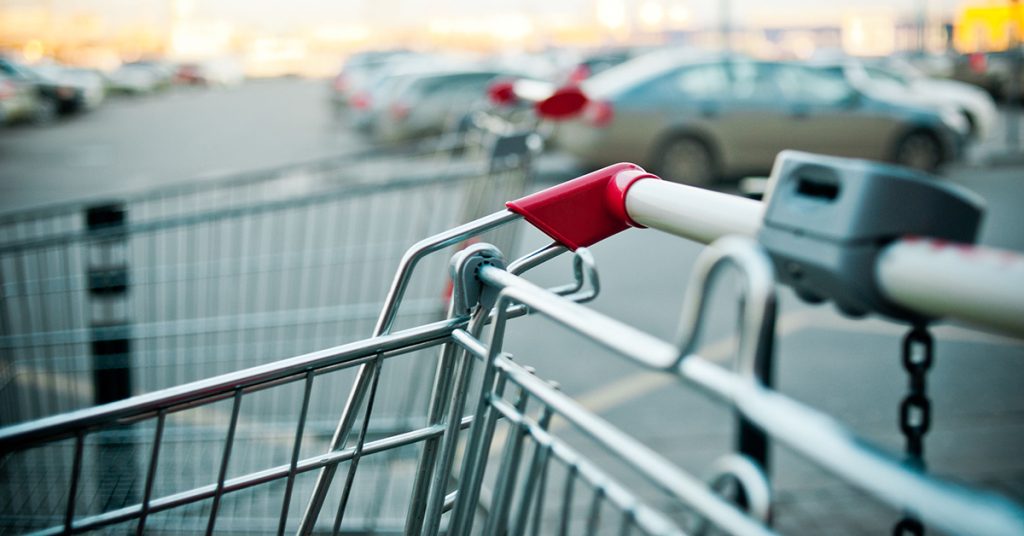Posts Tagged ‘National Safety Council’
Massachusetts Tries Again at Passing Hands-Free Driving Law
Hands-free legislation has taken a step forward in Massachusetts this year. So have the studies and research showing the dangers cell phones bring to the roads.
 Eight years ago, Massachusetts banned texting while driving. Since that time, lawmakers have considered several proposals to ban drivers from using hand-held cell phones, with a goal of reducing distracted driving injuries and fatalities. On May 15, 2019, the Massachusetts House of Representatives overwhelmingly supported another proposal with a 155-2 vote. As many watch, the state Senate now plans to discuss the legislation in early June. Watch with caution though. The Senate has already approved hands-free driving bills during each of the last two sessions, according to the State House News Service.
Eight years ago, Massachusetts banned texting while driving. Since that time, lawmakers have considered several proposals to ban drivers from using hand-held cell phones, with a goal of reducing distracted driving injuries and fatalities. On May 15, 2019, the Massachusetts House of Representatives overwhelmingly supported another proposal with a 155-2 vote. As many watch, the state Senate now plans to discuss the legislation in early June. Watch with caution though. The Senate has already approved hands-free driving bills during each of the last two sessions, according to the State House News Service.
Under the House bill (H 3793), drivers would not be able to use hand-held cell phones. If they want to talk, drivers will have to use hands-free technology such as a Bluetooth device and keep their hands away from their phones. The primary exception is drivers can make a single tap or swipe to activate the device’s hands-free mode. There is another limited exception for public safety personnel and drivers in certain emergency situations.
What about GPS? Drivers can continue to use GPS devices which are mounted onto their vehicle’s dashboard, but these must not impede operation.
Fines for violations would start at $100 for first-time offenders. There would be a $250 fine for a second offense and a $500 fine for third and subsequent offenses. The bill would take effect 90 days after passage, but drivers will receive warnings instead of fines for violations up until Dec. 31, 2019.
In addition to approving hands-free legislation, the House bill would also require an annual review of the race and demographic information for drivers who are issued traffic citations. While Massachusetts already collects this data, lawmakers say there needs to be a consistent and regular review.
Distracted Driving Increases Near Emergency Responders
As we wait for legislators to vote, we want to share a few recent studies on distracted driving.
In April, the National Safety Council (NSC) released an alarming and upsetting report on a dangerous trend: drivers using cell phones near emergency responders.
All 50 states have “move over” laws which require drivers to clear the way and give emergency responders space to work. The Massachusetts “Move Over Law” took effect in 2009 and protects the work area for police officers, firefighters, paramedics, tow truck drivers and all roadside emergency and maintenance professionals.
Despite these laws, the NSC reports 71 percent of drivers surveyed said they take photos and video when they see an emergency vehicle on the side of the road. While passing by, they film fires, car crashes and even routine traffic stops.
Drivers are doing more than capturing the scene. Sixty percent are also posting footage to social media. Another 66 percent are providing someone with an update by e-mail.
There is a tragic cost to this cell phone use. About 16 percent of drivers surveyed said they have actually hit a first responder or were involved in a near-crash. And despite their actions, nearly 90 percent agree: their cell phone use puts emergency responders in harm’s way.
This problem doesn’t go away once the ambulance or police car drives away. On a normal day, when emergency responders are not on the scene, 24 percent of the drivers admit they still snap pictures and record video. Another 29 percent of drivers say they engage with social media and 24 percent say send e-mails.
AAA Foundation for Driver Safety Reports on Teen Driving, Cell Phone Use
Another study comes from the AAA Foundation for Traffic Safety and reports on the risk teen drivers bring to the roads, including when they use cell phones.
The study focused on drivers between the ages of 15 and 18, including those with learner’s permits, restricted licenses (often called junior operator licenses) and full licenses. The study reports teens are a vulnerable driving group because of their inexperience and they need education into the potential consequences of cell phone use, speeding and other reckless behavior. AAA released the study to raise awareness between Memorial Day and Labor Day, often known as the “100 Deadliest Days.”
The study reported that teen drivers killed nearly 3,500 people from 2013 to 2017. Cell phone use contributes to these car accidents. Some 52 percent of teens said they had read a text message or sent an e-mail while driving, according to the AAA study.
AAA noted police often struggle to determine if texting caused a car crash, but that the study’s researchers made use of in-vehicle dash cameras. With these tools, AAA found 58 percent of teen crashes were the result of distractions, including texting and reading text from a cell phone.
About Breakstone, White & Gluck
Breakstone, White & Gluck of Boston specializes in representing those who have been injured by the negligence and wrongdoing of others. With more than 100 years combined experience, our personal injury attorneys represent clients in matters involving catastrophic injuries, car accidents, bicycle accidents, medical malpractice, head injuries and wrongful death.
For a free legal consultation, contact us toll-free at 800-379-1244 or 617-723-7676. You can also use our contact form.
Holiday Season Brings Rise in Car Crashes, Parking Lot Accidents

Parking lot crashes are more likely in Boston and Massachusetts this time of year, as holiday shoppers are out. What can you do to prevent accidents? Put down your cell phone, slow down and always watch for pedestrians.
When you finish your holiday shopping, and start to head home, you may be tempted to pick up your cell phone and call someone. But the parking lot is not a safe place and the holidays are not the season.
Unfortunately, car accident claims typically rise during the holidays, as many of us head out shopping or to enjoy holiday lights. According to the National Safety Council (NSC), the increase begins around Thanksgiving and Black Friday. We are now approaching one of the worst stretches, the days just before Christmas.
At Breakstone, White & Gluck, our Boston personal injury lawyers urge you to travel slowly and set aside distractions to prevent parking lot crashes. Too many drivers are engaging in these distractions, according to this recent National Safety Council poll:
- 66 percent of drivers nationwide said they would make phone calls while driving through parking lots.
- Teens were less likely to make phone calls than adults (60 percent).
- Another 63 percent said they would program GPS systems.
- More than half, 56 percent, said they would text and 52 percent said they would use social media.
- Another 50 percent said yes to sending or receiving e-mails, while 49 percent said they would take photos or watch videos.
- More than half of all teens and adults also admitted they would take time for personal grooming (59 percent of teens; 53 percent of adults).
Tips for Preventing Parking Lot Crashes
- Drive slowly. Give yourself plenty of time to react to pedestrians and other vehicles.
- Do not cut through parking lots; follow the traffic lane.
- Avoid distracted driving activities, such as cell phone use, texting, listening to loud music and engaging in intense discussion.
- Choose your place to check electronics, such as before you leave the mall or store.
- Use blinker signals.
- Obey stop signs and other signs. Back out carefully.
- Always watch for pedestrians in the parking lot and at the entrance. Be extremely patient and always wait for them to reach the sidewalk before moving.
- Walk all the way around your vehicle before stepping inside, looking for pedestrians and parents with small children and baby strollers.
- Consider parking away from other cars to avoid shopping mall parking lot crashes.
The Impact: Parking Lot Crashes
The Insurance Institute for Highway Safety reports parking lot crashes account for about 20 percent of all auto claims. The NSC reports on average each year, there are 60,000 injured by parking lot crashes and 500 or more who die. Pedestrian accidents account for many parking lot crashes. Backup accidents are responsible for nearly 10 percent of fatal pedestrian crashes in parking lots.
Over the past few years, a number of pedestrian accidents in Massachusetts parking lots have been fatal. In 2017, a Trader Joe’s employee in Acton was killed. A year earlier, a 52-year-old woman died in Wilmington, outside a Rite-Aid. In 2015, a pedestrian was killed in the parking lot of the Cloverleaf Mall in Natick, just across the street from the Natick Collection (or the old Natick Mall).
Cell Phone Use and Massachusetts Law
Eight years ago, Massachusetts banned texting while driving. If you are texting or writing an e-mail and cause a car crash, you could be cited by police. If you injure another driver, the police citation could be used in a civil lawsuit to prove your negligence and you will have to pay compensation to the victim.
All but three states have texting while driving bans. Hand-held cell phone bans are a different story, with just 16 states approving bans. Hand-held cell phones are still permitted when driving in Massachusetts, but safety advocates urge drivers not to use them, especially in parking lots. In a matter of seconds, a simple act such as trying to look up GPS directions or dialing a friend can lead to a serious and possibly fatal accident.
Free Legal Consultation: 800-379-1244
If you have been injured in a parking lot crash, it is important to learn your legal rights for seeking financial compensation under Massachusetts law. Contacting a Boston car accident lawyer promptly is essential so they can act quickly to protect your rights.
At Breakstone, White & Gluck, our lawyers have over 100 years combined experience representing those injured in auto collisions. For a free legal consultation, contact us at 800-379-1244 or 617-723-7676 or use our contact form.



